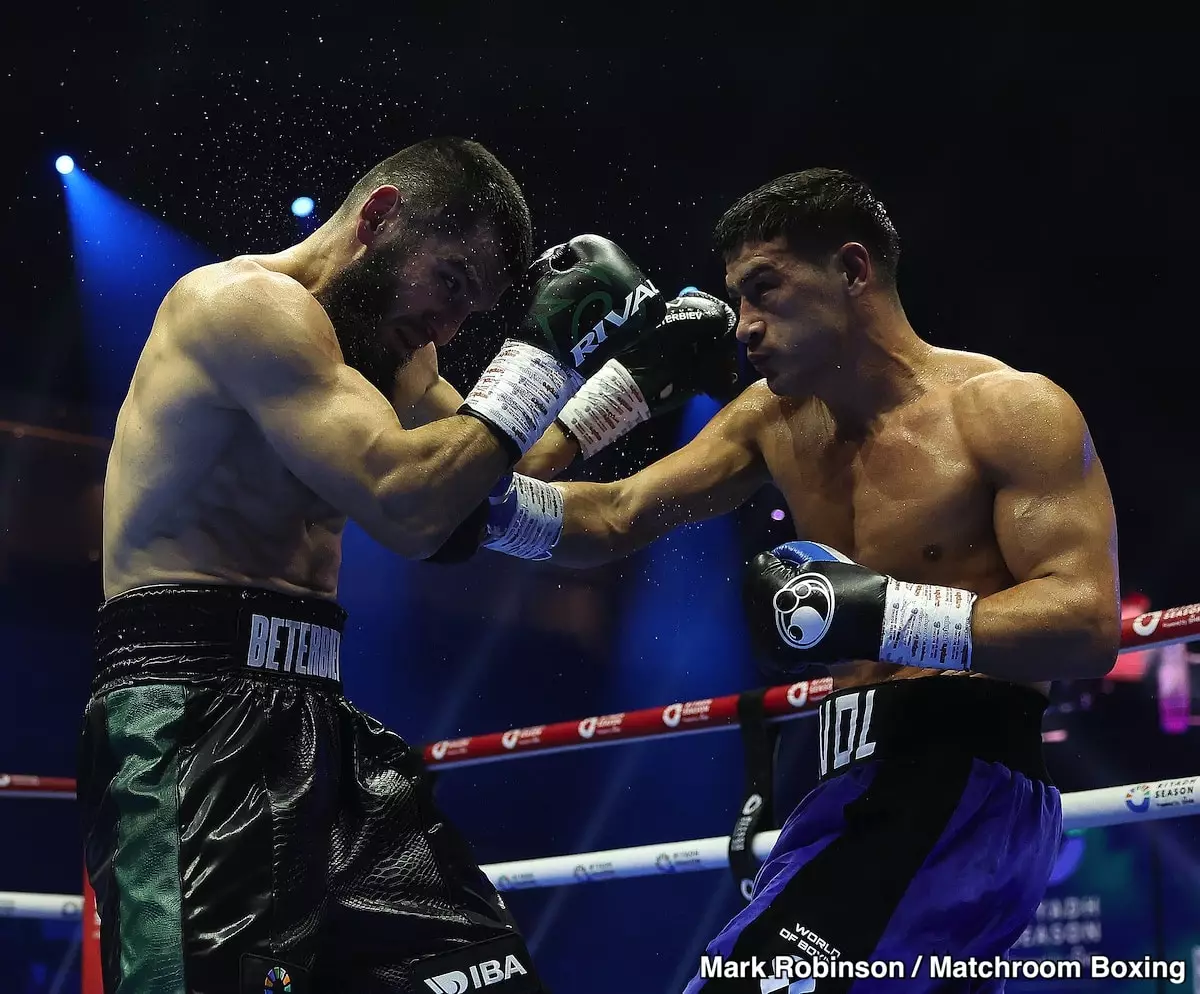Dmitry Bivol, a once-promising talent in the light heavyweight division, now finds himself at a critical juncture following his recent defeat against Artur Beterbiev. With a record of 23 wins to just 1 loss, Bivol’s aspirations of reclaiming his status hang by a thread. The decision to pursue an immediate rematch, while driven by hope, poses significant risks to his career and mental fortitude.
The Weight of Defeat
The aftermath of Bivol’s majority decision loss last Saturday in Riyadh has far-reaching implications. In the high-stakes world of professional boxing, a defeat can reverberate through a fighter’s psyche. Bivol’s self-confidence appears to be shaken, particularly as he navigates the harsh reality of his performance against Beterbiev. During the later rounds, Bivol visibly struggled to maintain his footing, indicating that Beterbiev not only unmasked flaws in Bivol’s strategy but also showcased a superior ability to control the pace and pressure of the match. The consequences of this defeat may be more than just a statistic; they could fundamentally alter Bivol’s approach to the ring.
Moreover, a rematch with Beterbiev could lead to a potentially catastrophic outcome for Bivol. The risk of experiencing a knockout defeat is a daunting prospect, with implications that extend beyond mere statistics. A second loss, especially by way of knockout, could firmly entrench doubts about Bivol’s capacity to compete at the top tier of the light heavyweight division. Predictably, the psychological toll of back-to-back defeats can be considerable, potentially rendering Bivol hesitant and tentative in future encounters.
The light heavyweight division features a host of formidable contenders that Bivol would need to face should he succumb to another defeat. Names like Joshua Buatsi, David Morrell, and David Benavidez typify the relentless competition that awaits any fighter struggling to regain momentum after a setback. These challengers possess the skill sets and determination required to exploit any fragility in Bivol should he come off a loss. The thought of overcoming these formidable barriers is daunting even for a fighter of Bivol’s caliber, and doubts surrounding his ability to triumph in such a landscape are legitimate.
Conversely, if Bivol opts to retreat to the super middleweight division, he may find opportunities for reinvention. The lure of a less competitive environment, complemented by fewer elite fighters aside from Canelo Alvarez, could provide him with a much-needed lifeline. Such a transition could allow Bivol to reclaim a championship and potentially restore his confidence. Nevertheless, this move would also signal a departure from the prestige of the light heavyweight division and may carry implications for how he will be perceived in boxing circles.
Roy Jones Jr., a boxing icon himself, has weighed in on the situation, vocalizing his belief that a rematch is warranted. His perspective underscores a debate that exists in boxing: can subjective interpretations of a bout’s outcome lead to justified calls for a second showdown? Jones argues that both fighters exhibited improvements, and he places emphasis on the necessity of a rematch to clarify the matter definitively. Yet, much like Bivol’s potential path forward, the call for a rematch also presents risks. If Bivol struggles again, the consequence would be dire, threatening to undermine not just his career but also his identity as a fighter.
Ultimately, Bivol’s decisions may define the trajectory of his career. While ambition is commendable, the challenge lies in balancing that ambition with the stark realities of competition. As he stands at a crossroads, one can only hope that Bivol, along with his team, makes choices that safeguard his career while allowing for growth and restoration of confidence. The world of boxing is relentless, and the pathway back to glory demands not only courage but also insightful strategy.

